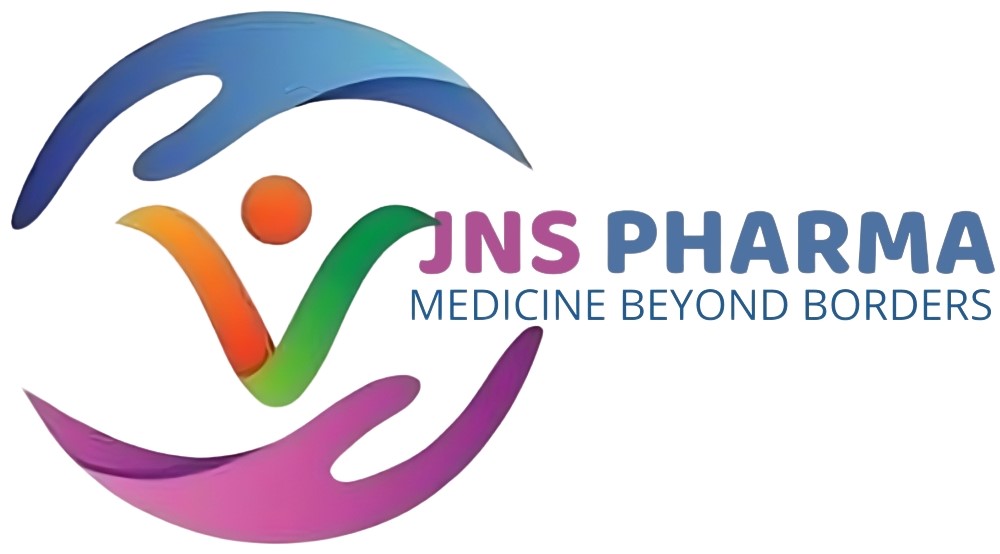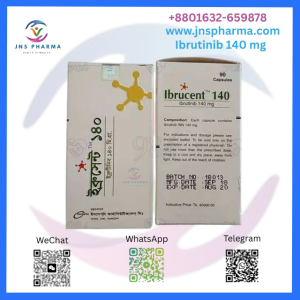Don't miss our holiday offer - up to 50% OFF!
Gilternib 40 mg (Gilteritinib)
Gilternib 40 mg is an anticancer targeted medicine that contains Gilteritinib, a potent asset of FLT3( FMS- suchlike tyrosine kinase 3). It’s primarily employed in the treatment of adult cases with regressed or refractory acute myeloid leukemia( AML) with a demonstrated FLT3 gene mutation. Through inhibition of aberrant FLT3 signaling, Gilteritinib decelerates or prevents the growth of leukemia cells. Gilternib is a tradition drug and should be taken under the supervision of an oncologist or hematologist.
Pharmacological Class and Mechanism of Action
Gilternib belongs to the class of tyrosine kinase impediments (TKIs). In cases with AML, mutations in the FLT3 gene beget the willful activation of FLT3 proteins, which stimulate the overproliferation and survival of cancer cells.
The FLT3-ITD and FLT3-TKD mutations are among the FLT3 receptor tyrosine kinases that are broadly inhibited by gelderitinib. Gilteritinib also inhibits other kinases similar as AXL, which play a part in the development of leukemia. Through this inhibition of aberrant signals, Gilternib reduces the growth of cancer cells and induces apoptosis (programmed cell death).
Indications
Gilternib 40 mg is indicated for:
Grown-ups with regressed or refractory AML with FLT3 mutations.
Use after previous chemotherapy, stem cell transplant, or other targeted remedy has not led to absolution.
Previous to inauguration of treatment, cases must have an FDA- approved test to determine if an FLT3 mutation is present.
Dosage and Administration
Cure 120 mg orally (typically three 40 mg pills), which was previously diurnal.
Administration: At the same time every day, with or without food.
Tablets are not broken, masticated, or crushed; instead, they are eaten whole with water.
Treatment continues until complaint progression or inferior toxin.
Cure reduction can be needed for side effects, changes in organ function, or medicine relations.
Contraindications
Gilternib is contraindicated in
Cases with a known acuity to Gilteritinib or any element of the expression.
Caution is needed in cases with severe hepatic or renal impairment, as dose adaptation may be needed.
Warnings and Precautions
Cases taking Gilternib are to be covered nearly due to the pitfalls of
Isolation Pattern
A potentially life- hanging complication from rapid-fire development of leukemia cells.
Symptoms fever, respiratory torture, low blood pressure, rapid-fire weight gain, and fluid retention.
Requires immediate treatment with corticosteroids and probative care.
QT Interval extension
Can affect in dangerous heart meter abnormalities.
ECG and electrolyte monitoring are recommended ahead and during treatment.
Posterior Reversible Encephalopathy Syndrome( PRES)
A rare but serious neurological complaint.
Symptoms seizures, headache, confusion, changes in vision.
Treatment interruption is needed if PRES is suspect.
Hepatotoxicity
Liver function should be cover regularly.
Cure reduction or treatment termination may be need if liver enzyme elevations are noted.
Pancreatitis
Severe abdominal pain and elevation in pancreatic enzymes should be cover.
Side Effects
Common side effects of Gilternib 40 mg include
Fatigue, weakness
Nausea, puking, diarrhea, constipation
Fever, cough, upper respiratory infections
Headache, dizziness
Rash, muscle or joint pain
lump in hands, bases, or legs
Serious side effects
Isolation pattern
Heart meter irregularities
Neurological signs( PRES)
Liver damage
Serious infections due to reduction of white blood cell counts
Drug Interactions
Gilternib is substantially metabolize by the CYP3A4 enzyme in the liver, and therefore its exertion may be alter through relations with CYP3A4 impediments or corrupters
Strong CYP3A4 impediments (e.g., ketoconazole, clarithromycin) may increase Gilteritinib situations.
Strong CYP3A4 corrupters, such as carbamazepine and rifampin, may lessen its effort.
Use cautiously when given with specifics that beget QT extension.
Use in Special Populations
Gestation is not advise due to implicit fetal damage. Effective contraception should be employe during treatment and for at least 6 months following the last cure.
It is not recommend to breastfeed during therapy or for two months after the final dose.
Elderly cases: No major differences in safety, but careful monitoring is necessary.
Monitoring Parameters
Cases who are taking Gilternib remedy bear
FLT3 mutation testing before starting treatment.
Regular complete blood counts (CBC) to estimate the response of the bone marrow.
Liver function tests (ALT, AST, bilirubin) and renal function tests.
ECG and electrolyte monitoring.
Clinical monitoring for isolation pattern and infections.
Storage
Keep at 30 °C (86 °F) or lower.
>Keep in the original package to guard against humidity.
>Keep out of reach of children.
>Case Comforting Points
Take the medicine at the same time daily.
Don’t discontinue treatment without first talking to your physician.
Report incontinently if the symptoms of isolation pattern or irregular twinkle are observe.
Avoid grapefruit and grapefruit juice input as it may increase medicine situations.
As directed, use effective contraception both during and after the course of treatment.
Conclusion
Gilternib 40 mg (Gilteritinib) is a significant advance in the target treatment of FLT3- shift regress or refractory AML. With its medium of direct inhibition of the aberrant signaling pathways driving leukemia cell growth, it offers a precious option for cases with minimum remedial options. Still, due to the troubles of serious side effects similar as isolation pattern, QT extension, and organ toxin, its use should be antece by rigorous case selection, close monitoring, and strict adherence to safety preventives. Under the guidance of a seasoned oncologist, Gilternib can increase survival rates and give new stopgap for cases with this aggressive form of leukemia.







Reviews
There are no reviews yet.